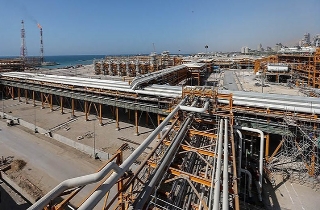 [By Paul Brown on Climatenewsnetwork.net] Analysts say tackling climate change is a more difficult and expensive challenge for governments than achieving the unconnected goal of being self-reliant for energy needs.
[By Paul Brown on Climatenewsnetwork.net] Analysts say tackling climate change is a more difficult and expensive challenge for governments than achieving the unconnected goal of being self-reliant for energy needs.
For many governments aiming to reduce their import bills and avoid being reliant for fuel on potentially hostile or unstable foreign powers, energy independence is the ultimate goal.
But international economists have published a report warning that it is false to believe the policy will also help to stave off climate change.
New research by the International Institute for Applied Systems Analysis (IIASA) shows that there is no real link between the two issues, despite the fact that politicians in many countries have claimed otherwise while trying to cut imports of oil, coal and gas.
Among the countries that have tried to merge the two issues is the US, where there has been a big drive to boost domestic supplies of oil, gas and biofuels in order to avoid reliance on the Middle East suppliers. Eastern European governments also have sought to ally to two ideas, partly because they want to cut the use of Russian gas.
Global temperatures
But the latest analysis says it easier and cheaper to achieve the goal of energy independence than to reduce emissions low enough to keep global temperatures below 2°C.
The study published in the Nature Energy journal says that ambitious climate policies would have the effect of lowering imports, since less fossil fuel would be needed, but the two policies are not otherwise linked.
Previous research has shown that climate policies would bring benefits for other areas, including improved energy security and reduced air pollution. The new study, led by IIASA researcher Jessica Jewell, explored how policies focused on energy security would affect greenhouse gas emissions.
“We know that if we were to radically reduce greenhouse gas emissions, fossil fuel imports would fall,” Jewell says. “But we found that the opposite isn’t true. Restricting energy imports would have a very small impact on emissions.”
Although not cited in the report, an example of this is the UK, where the government is increasing subsidies for North Sea oil and encouraging fracking for gas in the name of reducing reliance on imported fossil fuels, while at the same time cutting support for onshore wind and solar energy.
Economic models
The IISA study used five different global energy and economic models to test policies aimed at cutting energy imports and compared them with policies for combating climate change.
It showed that restricting imports to achieve energy independence would cut emissions only between 2% and 15% by the end of the century and allow temperatures to rise between 3.5°C and 4°C over pre-industrial levels.
Policies focused on climate change mitigation require much more fundamental changes in the energy system, cutting emissions by 70% to keep temperatures below the 2°C target set by politicians. Cutting emissions also costs at least three times as much, and in some cases 20 times.
David McCollum, an IIASA researcher and one of the study’s co-authors, says that the reason for this is that “climate policies would stimulate domestic renewables and energy efficiency much more than policies focused on reducing energy imports”.
The researchers say that further work is required to identify policies that will achieve both objectives at the same time.
Posted on Climatenewsnetwork.net on June 7, 2016.
